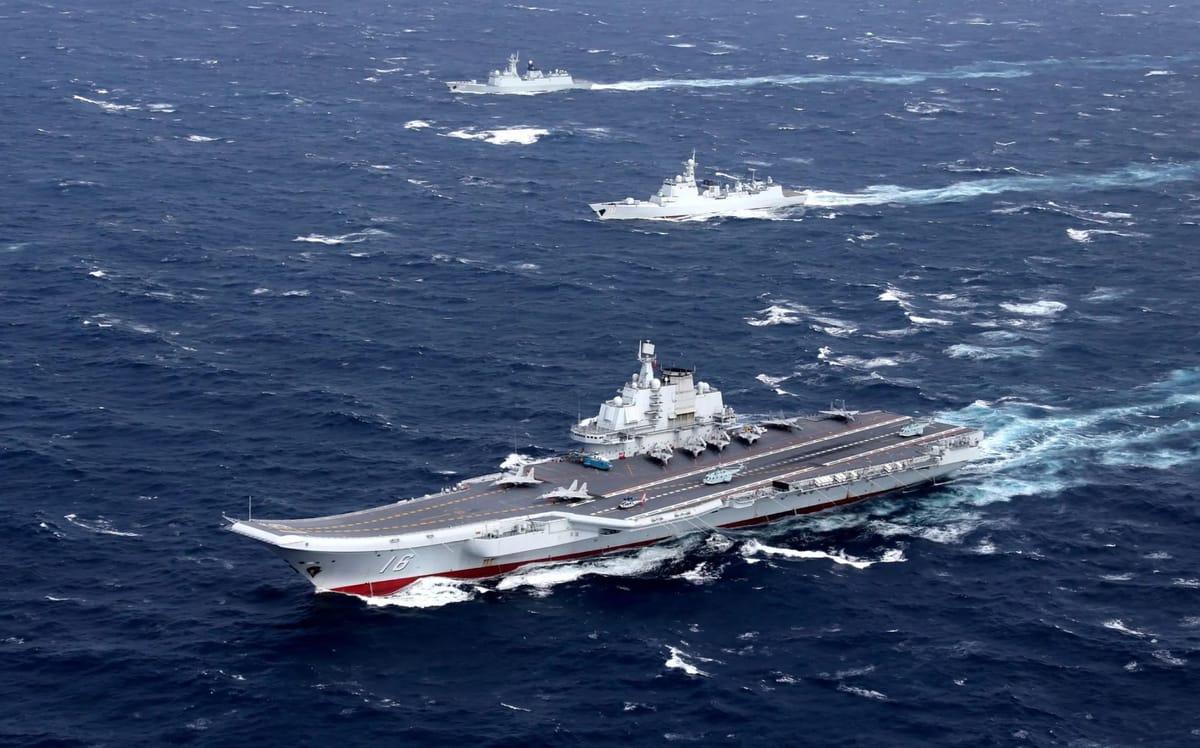China Launches Military Drills Encircling Taiwan After President Lai Ching-te's Inauguration, Summons ROK Ambassador
China Summons Korean and Japanese Diplomats to Protest Taiwan President's Inauguration Attendance, South Korea to Chair UN Security Council in June, Prepared to Convene Meetings on North Korean Provocations

The Taiwan Strait is at the forefront of international concerns again, as China has launched large-scale military exercises encircling Taiwan, just days after the inauguration of President Lai Ching-te. The drills, announced by the Eastern Theater Command of the Chinese People's Liberation Army (PLA) and the Chinese Foreign Ministry on May 23, are being described as a "severe punishment" for what China perceives as Taiwan's pro-independence stance under Lai's leadership. This marks the first time China has conducted such extensive military maneuvers around Taiwan since Lai, known for his pro-independence leanings, visited the United States last August while serving as Vice President. The escalation in military pressure from China comes as the anti-China Democratic Progressive Party (DPP) has regained power in Taiwan, with the pro-China Kuomintang party losing the recent election. Analysts suggest that as cross-strait relations deteriorate and conflicts between the U.S. and China deepen, Beijing will increasingly resort to military threats and sanctions to retaliate against Taiwan.
The "Joint Sword 2024A" exercise, as it has been dubbed, is set to last for two days, with the PLA's Eastern Theater Command mobilizing air, naval, and rocket forces to encircle Taiwan. Dozens of military aircraft and the latest warships armed with live ammunition are being deployed in the Taiwan Strait and the waters and airspace around Taiwan's east, south, and north, as well as the Kinmen, Matsu, Wuqiu, and Dongyin islands. The focus of the drills, according to the PLA, will be on testing the readiness for maritime and air combat, gaining battlefield control, and conducting precision strikes on targets. The spokesperson for the Eastern Theater Command characterized the exercise as a direct response to Lai Ching-te's inauguration, calling it a "severe punishment" for the "Taiwan independence separatist forces" and a "stern warning" against external interference and provocation. Chinese Foreign Ministry spokesperson Wang Wenbin framed the drills as an exercise to "safeguard the territorial integrity of the country."
Taiwan's military has strongly criticized the Chinese military exercises, labeling them as an act of "provocation that undermines regional peace and stability." In response, Taiwan has swiftly deployed its own troops, with the Ministry of National Defense ordering all military personnel to be prepared for war and not to avoid confrontation. The escalation in tensions comes at a sensitive time, with the Korea-China-Japan trilateral summit set to take place in Seoul from May 26-27, where China is expected to reaffirm its strong position on the Taiwan issue, which it considers a "core interest." China has also imposed a series of sanctions targeting Taiwan's allies since Lai Ching-te's inauguration, including adding U.S. defense companies Boeing Defense, Space & Security, General Atomics Aeronautical Systems, and General Dynamics Land Systems to its sanctions list, prohibiting them from future exports to and investments in China. Additionally, the Chinese Foreign Ministry announced sanctions, including asset freezes and entry bans, on 12 U.S. defense companies and 10 of their executives, accusing the U.S. of continuing to sell weapons to Taiwan and violating the "one-China" principle.
China Summons Korean and Japanese Diplomats to Protest Taiwan President's Inauguration Attendance
In a related development, China's Ministry of Foreign Affairs summoned the charges d'affaires of the South Korean and Japanese embassies on May 22 to protest the attendance of South Korean and Japanese lawmakers at Lai Ching-te's inauguration ceremony. Liu Jinsong, Director-General of the Asian Affairs Department of the Foreign Ministry, "met and had an in-depth exchange of views" with Akira Yokochi, Minister at the Japanese Embassy in China, and Kim Han-gyu, Minister at the South Korean Embassy in China, on matters related to China-Japan-South Korea cooperation. During the meetings, Liu also expressed China's firm position on the Taiwan issue. In Chinese diplomatic parlance, the term "wejian" is used to describe the act of summoning foreign diplomats stationed in China to the ministry or meeting them elsewhere to convey protests or other messages, though it is considered less severe than the term "zhaojian," which means summoning and meeting. China's move is seen as a response to the attendance of political figures from South Korea and Japan at Lai's inauguration ceremony on May 20.
The Taiwanese Ministry of Foreign Affairs announced that more than 500 representatives from 51 countries and overseas guests attended the inauguration ceremony, including a delegation of former senior U.S. officials such as Ryan Hass, former director of the U.S. National Economic Council, and Richard Armitage, former U.S. Deputy Secretary of State. South Korea did not send a separate government delegation, with Eun-ho Lee, the representative of the Taipei Office, and Cho Kyung-tae, the chairman of the Korea-Taiwan Parliamentary Friendship Association, attending the ceremony. On May 21, the Chinese Embassy in South Korea posted on social media to protest Cho's attendance, arguing that it "blatantly violates the one-China principle and the spirit of the China-South Korea Joint Communiqué, and sends a serious wrong signal to the 'Taiwan independence' separatist forces." The embassy urged the South Korean side to "abide by the one-China principle, not to interfere in China's internal affairs in any way, and not to support the 'Taiwan independence' separatist forces in any way, and to take practical actions to safeguard the overall situation of China-South Korea relations." The summoning of the South Korean and Japanese diplomats and the strong statements from the Chinese side underscore the sensitivity and importance China attaches to the Taiwan issue and its determination to counter any perceived support for Taiwan's independence.